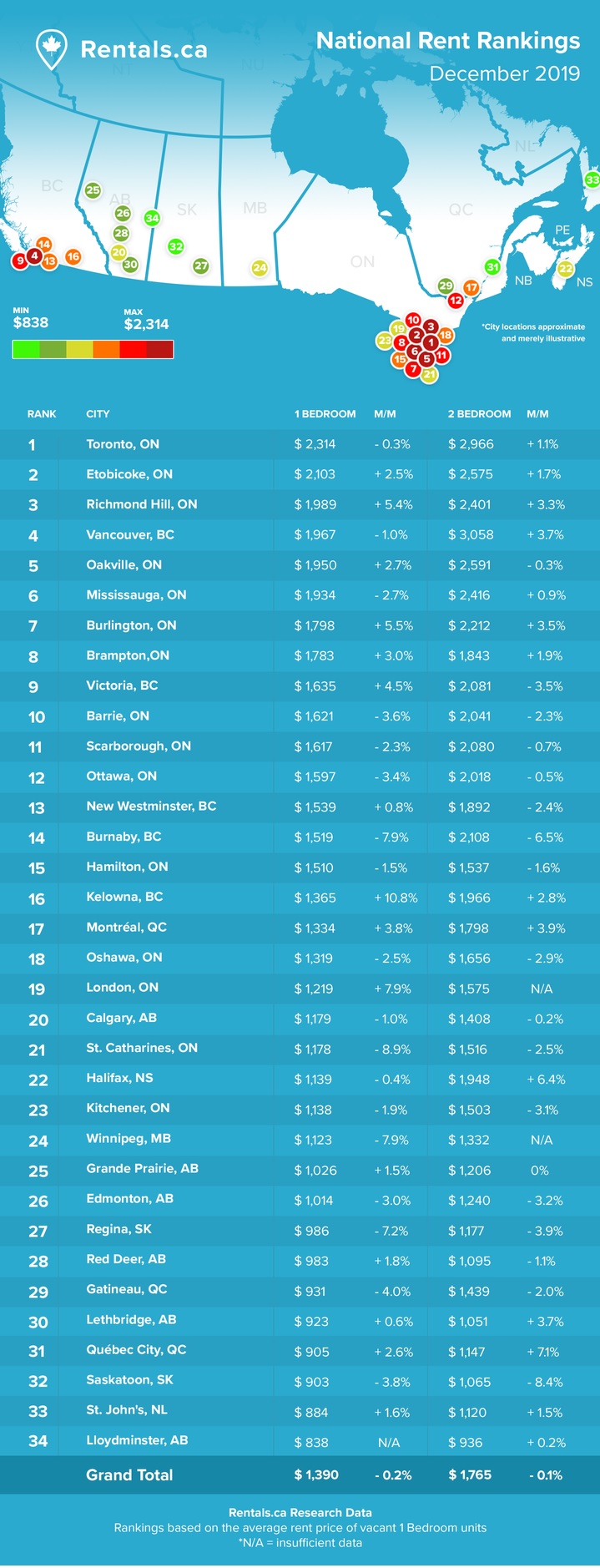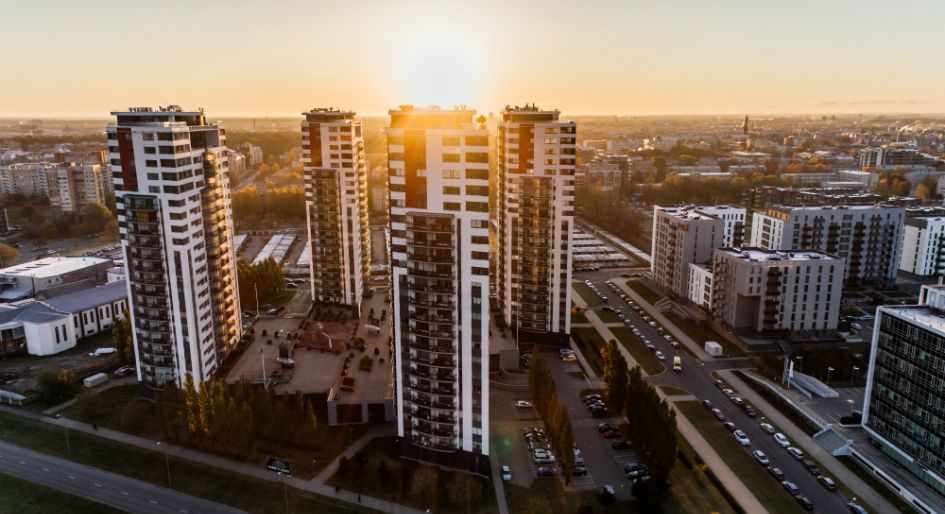After two years of unprecedented rent growth, real estate analysts are predicting that average rents in Canada will continue to increase in 2020 despite an increase in purpose-built rental construction and legislative changes impacting development.
In the December National Rent Report, Rentals.ca and Bullpen Research & Consulting are forecasting that average monthly rents in Canada will increase by 3 per cent, with some cities experiencing more significant hikes.
Specifically, Toronto will see rents potentially rise by 7 per cent; Montreal by 5 per cent; Ottawa by 4 per cent; Vancouver by 3 per cent; while Calgary and Edmonton will likely see a small decline of 1 per cent.
Average rents in Canada: 2019
According to Rentals.ca listings data, the average rent for Canadian properties in November was $1,918 per month — representing a decrease of 1.1 per cent monthly, but an increase of 9.4 annually. Toronto remains the priciest city for renters for a one-bedroom home with average monthly rents coming in at $2,314, while Vancouver has the most expensive average monthly rents for a two-bedroom topping the $3,000 mark at $3,058.
The impact of the changes to the mortgage stress test have started to fade as developers and investors look to increase rental supply to offset the increase in rental demand brought on by the decrease in mortgage credit and the recent spike in population.
“After years of focusing on the ownership housing market, the media has focused more attention on the rental market as the mortgage stress test, expanded rent control, changing AirBnB legislation, rapid population growth, and record rental housing construction continues to disrupt the balance between supply and demand nationally,” said Ben Myers, president of Bullpen Research & Consulting. “We expect the market to continue to be undersupplied overall in Canada in 2020.”
At the end of the third quarter, the Canada Mortgage & Housing Corporation reported almost 72,000 rental units were under construction throughout Canada, the highest rate the country has seen in over 30 years.
Rentals.ca data indicates that Hamilton and Scarborough top the list of municipalities in need of additional rental supply with year-over-year rent growth of 25 per cent and 23 per cent respectively. Meanwhile, two of Canada’s most affordable rental markets—Quebec City and Winnipeg—have also experienced significant jumps in year-over-year rent to the tune of 22 and 21 per cent.
On the other extreme, municipalities in Alberta and Saskatchewan, including Red Deer, Calgary, Regina, Saskatoon, Edmonton and Fort McMurray, are seeing average rents for apartments decline from November 2018 to November 2019. The declines ranged from -1 per cent to -7 per cent annually.
Provincial data
On a provincial level, Ontario had the highest rental rates in November, with landlords seeking $2,339 per month on average (all property types), up from $2,334 in October, and 9.1 per cent annually from $2,144 in November of 2018.
In Saskatchewan, the average monthly rent declined 9.7 per cent annually, while average rents in Alberta are down 3 per cent.
“After two years of unprecedented rent growth, which included several markets where average rents increased by 20 per cent or more, we do expect some moderation in 2020,” noted Matt Danison, CEO of Rentals.ca. “There should be some supply relief in the Greater Toronto Area in 2020, but Rentals.ca and Bullpen expected average rental rates for all property types in Toronto and Mississauga to increase by 7 per cent to 8 per cent next year.”
One continuing trend seems to be that developers are looking to cater to more affluent renters, including those shut out of the ownership market by increasing prices, younger renters choosing to be tenants for lifestyle reasons, and boomers and empty-nesters trading down from a larger dwelling.
Here is a detailed breakdown of average rents in Canada for December 2019:







